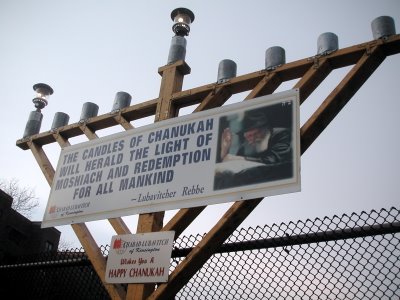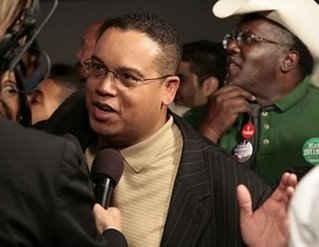No, I didn't just write a nasty word. First thing's first: the word
niggardly has no etymological relation to a similar word, a racial slur with a very sordid and controversial history. No,
niggardly and
niggard, as John Derbyshire wrote in the
National Review a few years ago, have "nothing to do with blackness."
A synonym is "stingy," according to
Merriam-Webster. The dictionary defines it as: "grudgingly mean about spending or granting," and "provided in meanly limited supply." The origin of the word, like that of its cousin,
niggling, is probably Scandinavian. It's an old word, used by Shakespeare, Milton, and Chaucer.
The issue of its meaning comes up every few years in the national news. In one of the last rounds, the Washington Post said this about the etymology:
The Barnhard Dictionary of Etymology traces the origins of "niggardly" to the 1300s and the words nig and nigon, meaning miser, in Middle English. It also notes possible earlier origins in languages including Old Icelandic, Old English and Middle High German. There is no mention of any racial connotation.
Let me emphasize this fact again:
It has no relation to any racial slur.
But then why is it such a controversial word? People -- white people -- have been reprimanded and even fired for using it. In 2002, a Wilmington, North Carolina
teacher got in trouble for using the word in her fourth grade classroom, making national headlines. In 1999, David Howard, an aide to Washington D.C. mayor Anthony Williams,
resigned after using the word in a policy discussion with three colleagues.
So if it's not a racial slur, then what's wrong with using it? "Dr. Ink," a columnist for the journalism resource website
Poynter Online says the word is "on its deathbed":
To say so is not to cave in to the so-called forces of political correctness. Semantic change happens. Sometimes it happens to a word across millennia, and sometimes it happens in what seems like a snap of the finger. (It's now almost impossible for Dr. Ink, an obsequious homophile, to sing "Don we now our gay apparel" without thinking of reindeer in drag.)
Hmm. In a discussion about the word and its usage today with coworker, I posed the idea that when we used the word, which sounds so much like a racial slur, we are as aware of that fact as our audience is. I held it up as an example of what Slavoj Zizek has called "inherent transgression." That is, we have it both ways -- whether we like it or not.
Compare it to John Malkovich's character in the (disappointing) movie
Art School Confidential. The character, an art professor, says to a troubled student something to the effect of, "I'm here for you, in and out of the classroom" -- while his hand is on the student's knee. The professor means literally "I will help you in my capacity as a teacher" -- unless the student takes it to mean that the teacher is making a pass at him. In that case, the teacher means "I'm making a pass at you." Either way, the teacher has plausible deniability.
Applying this paranoid uncertainty to our word of the day, every time someone says "niggardly," they invoke (consciously, subconsciously, or unconsciously -- but most likely
consciously) the word
nigger, which, as you can see, I've been very reluctant to use up until this point.
My recommendation is to avoid the word. Not because anyone would think that you actually might be saying a naughty word, but because those of us with vocabularies big enough to know the word know just as well that the word is a landmine. To use it when many other words (miserly, stingy, parsimonious) would do constitutes a political act in itself. A sort of provocative double meaning, challenging your audience to either accept what
sounds racist or reveal their meager vocabulary.
Or maybe that's a load of crap. It could be hogwash till you're confronted with the possibility of offending someone in person. John Derbyshire's 2002
National Review article is essentially a conservative intellectual defense of the word's innocent origins, but even he acknowledges that manners trumps the battle over political correctness:
It was in conversation with friends (all nonblack) that I saw some of the other side of the issue. One friend, who has serious credentials as a conservative thinker, said this: "John, you are a gentleman, and I know you would not knowingly give unnecessary offense. I am sure, therefore, that you would in fact avoid the word 'niggardly' in a group that included not-very-well-educated black fellow citizens." I had to admit that he was right: I would. Later that evening, watching TV, I caught a very good biographical program about the jazz singer Ella Fitzgerald. Now I am a huge fan of Ella, who was of course black. At the same time, the program confirmed a thing I had suspected from similar material: she had little education, and in fact was probably not very bright. So: Here is a black person who I admire tremendously, and in whose presence (which I never was) I would be awestruck; yet for whose intellect (other than musical) I have no very high regard. Would I have used "niggardly" in conversation with Ella? No, of course I wouldn't.
Ignore the condescending elitism there. Would he actually use it in conversation with an
educated black person? Where do you stop? When your defense of the word become an awkward losing battle that makes your friends uncomfortable?
Christopher Hitchens, writing in
Slate this week (on the subject of the infamous "Kramer Meltdown"), says he doesn't support Jesse Jackson's moratorium on the word "nigger." 'Why create a taboo when etiquette will do?' he argues. It's either etiquette or cowardice that made him think twice about the
niggardly, though:
It was while giving a speech in Washington, to a very international audience, about the British theft of the Elgin marbles from the Parthenon. I described the attitude of the current British authorities as "niggardly." Nobody said anything, but I privately resolved—having felt the word hanging in the air a bit—to say "parsimonious" from then on.
We can keep creating linguistic taboos, Hitchens says, but ultimately, "Hatred will always find a way, and will certainly always be able to outpace linguistic correctness."
So now what do we do? Am I a linguistic coward for bowing to irrationally politically correct pressure when I choose not to use (and fight for) the dying word? No.
But I am if I don't fight for any poor sap who gets called out for using it in a Shakespeare class. I'll fight for the British magazine the
Economist, which was scolded by American readers for using the word in 1995. And I'll fight, in the name of open discussion, for the North Carolina teacher and the D.C. mayor's aide who made national news for their provocative vocabularies.
When we look behind the words for their intention, we're not as likely to take offense. Did the fourth grade teacher
really mean to use a racial epithet when she defined the word
niggardly to her class? Of course not. And if you think that someone is invoking "inherent transgression" when they use the word, if you think they are taking advantage of the fact that it
sounds like a more offensive word, I suggest that you take the high road: assume they mean what they say; assume the best of intentions.








































